
Prof. Fushuan Wen, IEEE Fellow
Director, Sanya Global Energy Research Institute, Sanya, China
Zhejiang University, China
Biography: Fushuan Wen (SM'17) received the B.E. and M.E. degrees from Tianjin University, Tianjin, China, in 1985 and 1988, respectively, and the Ph.D. degree from Zhejiang University, Hangzhou, China, in 1991, all in electrical engineering.
He joined the faculty of Zhejiang University in 1991, and has been a Full Professor and the Director of the Institute of Power Economics and Information since 1997, and the Director of Zhejiang University-Insigma Joint Research Center for Smart Grids since 2010. He was a university distinguished Professor, the Deputy Dean of the School of Electrical Engineering and the Director of the Institute of Power Economics and Electricity Markets in South China University of Technology, Guangzhou, China, from 2005 to 2009. From May 2014 to May 2017, he was a Professor with Universiti Teknologi Brunei, Brunei. His research interests lie in power industry restructuring, power system alarm processing, fault diagnosis and restoration strategies, as well as smart grids and electric vehicles.
Prof. Wen is an Editor of the IEEE TRANSACTIONS ON POWER SYSTEMS and the IEEE POWER ENGINEERING LETTERS, a subject editor on power system economics of the IET Generation, Transmission and Distribution, the Journal of Energy Engineering (ASCE), and the Journal of Modern Power Systems and Clean Energy (Springer).
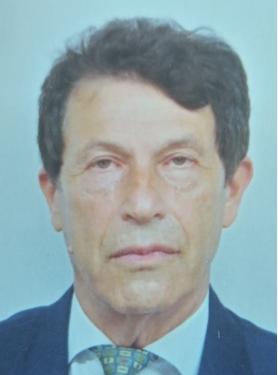
Prof. Adrian Ioinovici, IEEE Fellow
Director, Power Electronics based on Switched Capacitors (PESC) Center
Shanghai University of Electrical Power, China
Biography: Adrian Ioinovici, IEEE Fellow, is the Director of the Power Electronics based on Switched Capacitors (PESC) Center, the Shanghai University of Electrical Power, China, within the “one thousand foreign experts plan”, and holds honorary professorships from many universities
He got the IEEE Fellow grade for “pioneering work in switched-capacitor converters” and served as Associate Editor for many IEEE Transactions.
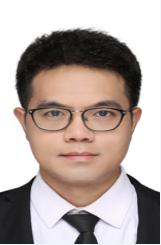
Prof. Yiming Zhang
Fuzhou University, China
Biography: Prof. Yiming Zhang received the B.S. and Ph.D. degrees in electrical engineering from Tsinghua University, Beijing, China, in 2011 and 2016, respectively. From 2017 to 2019, he was a Postdoctoral Researcher with San Diego State University, San Diego, CA, USA. From 2019 to 2020, he was a Research Fellow with Nanyang Technological University, Singapore. He is now a full professor with Fuzhou University, Fuzhou, China. He has authored 1 book from Springer, authored or co-authored more than 100 technical papers in journals and conference proceedings. His research interests include wireless power transfer for electric vehicles and mobile phones, and power electronics converters.
Prof. Yiming Zhang was the recipient of the National Oversea High-Level Talent Program and Outstanding Doctoral Dissertations of Tsinghua University in 2016. He was recognized as an Outstanding Reviewer for the IEEE Transactions on Power Electronics in 2019 and a Distinguished Reviewer for the IEEE Transactions on Industrial Electronics in 2020.
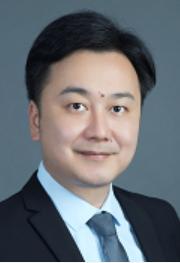
Prof. Chuan Qin
University of Shanghai for Science and Technology, China
Biography: Chuan Qin received his B.S. degree in electronic engineering and the M.S. degree in signal and information processing from Hefei University of Technology, Anhui, China, in 2002 and 2005, respectively, and the Ph.D. degree in signal and information processing from Shanghai University, Shanghai, China, in 2008. Since Dec. 2008, he has been with the faculty of University of Shanghai for Science and Technology, where he is currently a Professor. He was with Feng Chia University at Taiwan as a Postdoctoral Researcher from July 2010 to July 2012. His research interests include multimedia intelligent computing, AI security, data hiding and image processing in encrypted domain. He has published over 200 peer-reviewed papers in journals and conferences, such as IEEE TIP, IEEE TIFS, IEEE TMM, IEEE TCSVT, IEEE TDSC, IEEE TKDE, and ACM MM. He has also published one book and held six authorized patents. He was selected as the Highly Cited Chinese Researchers by Elsevier in 2020 and the World’s Top 2% Scientists in 2020-2024. He won the Excellent Paper Awards of CIHW 2016 and ChinaMFS 2023, and the Candidate of Excellent Paper Award of IEEE IIHMSP 2014. He has served as the Associate Editor for ACM TOMM, Signal Processing (Elsevier) and Information Fusion (Elsevier).

Prof. Yang Han
University of Electronic Science and Technology of China, China
Biography: Yang Han (S’08-M’10-SM’17) received the Ph.D. degree in Electrical Engineering from Shanghai Jiaotong University (SJTU), Shanghai, China, in 2010. In 2010, he joined the University of Electronic Science and Technology of China (UESTC), Chengdu, China, where he has been an Associate Professor in 2013, and Full professor in 2021. From March 2014 to March 2015, he was a Visiting Scholar with the Department of Energy Technology, Aalborg University, Aalborg, Denmark. He is currently with the School of Mechanical and Electrical Engineering, UESTC. His research interests include the ac/dc microgrids, active distribution networks, power quality, grid-connected converters for renewable energy systems, active power filters, multilevel converters, and static synchronous compensators (STATCOMs).
Dr. Han has received several national and provincial projects, and more than 30 industrial projects in the area of power electronics, smart grid, microgrid, and power quality analysis and compensation. He holds more than 40 issued and pending patents. Dr. Han was listed as “World’s Top 2% Scientist 2022” by Stanford University in 2022, and the recipient of the Young Scientist Award in CPESE 2021, the Provincial Science and Technology Award in 2020 and 2022, Science and Technology Award from Sichuan Electric Power Company in 2019, Academic Talent Award by UESTC, in 2017, Baekhyun Award by the Korean Institute of Power Electronics, in 2016. He has published a book “Modeling and Control of Power Electronic Converters for Microgrid Applications”, ISBN: 978-3-030-74512-7, Springer. He served as an Associate Editor of Journal of Power Electronics and IEEE ACCESS (2019-2020).
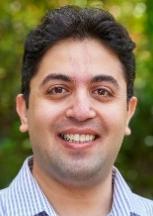
Assoc. Prof. Farhad Shahnia
Murdoch University, Australia
Biography: Professor Farhad Shahnia received his PhD in Electrical Engineering from Queensland University of Technology (QUT), Brisbane, in 2012. He is currently a Professor at Murdoch University. Before that, he was a Lecturer at Curtin University (2012-15), a research scholar at QUT (2008-11), and an R&D engineer at the Eastern Azarbayjan Electric Power Distribution Company, Iran (2005-08). He is currently a Fellow member of Engineers Australia, Senior Member of IEEE, and member of the Australasian Association for Engineering Education.
Farhad’s research falls under Distribution networks, Microgrid and Smart grid concepts. He has authored one book and 11 book chapters and 250+ peer-reviewed scholarly articles in international conferences and journals, as well as being an editor of 8 books.
Farhad has won 5 Best Paper Awards in various conferences and has also received the IET Premium Award for the Best Paper published in the IET Generation, Transmission & Distribution journal in 2015. One of his articles was listed under the top-25 most cited articles in the Electric Power System Research Journal in 2015 while one of his 2015 journal articles has been listed under the top-5 most read articles of the Australian Journal of Electrical and Electronics Engineering. He was the recipient of the Postgraduate Research Supervisor Award from Curtin University in 2015 and the Australia-China Young Scientist Exchange Award from the Australian Academy of Technology and Engineering in 2016.
Farhad is currently a Subject Editor, Deputy Subject Editor, and Associate Editor of several journals including IEEE Access, IET Generation, Transmission & Distribution, IET Renewable Power Generation, IET Smart Grid, IET Energy Conversion and Economics, and International Transaction on Electrical Energy Systems and has served 40+ conferences in various roles such as General, Technical, Program, Publication, Publicity, Award, Sponsorship, and Special Session Chairs.
Farhad has led the IEEE Western Australia Section as the 2020-2021 Chair, and was the 2019 Founding Chair of the IEEE Western Australia Industrial Electronics Society (IES) Chapter. He was the 2023 Vice-chair of the IES’s Technical Committees on Smart Grids
Speech Title: “Energy Systems Re-evolution from Centralized to Distributed by Microgrids and Virtual Power Plants”
Abstract: Electricity systems around the world are experiencing a radical transition as the consequence of replacing fossil fuels, used for electricity production, by sustainable and cleaner energies. The growing penetration of renewable energies requires smarter techniques capable of handling the uncertainties of these intermittent sources. Along with this change, traditionally centralised power systems are also converting into distributed self-sufficient systems, often referred to as microgrids, that can operate independently. Virtual power plants are frameworks under which microgrids can be deployed within communities and enable energy transaction amongst retailers, customers and private investors. This talk will focus on the role of highly integrated inverter-based resources in power systems in the form of microgrids and virtual power plants for energy transition plans, and will discuss their benefits and challenges.
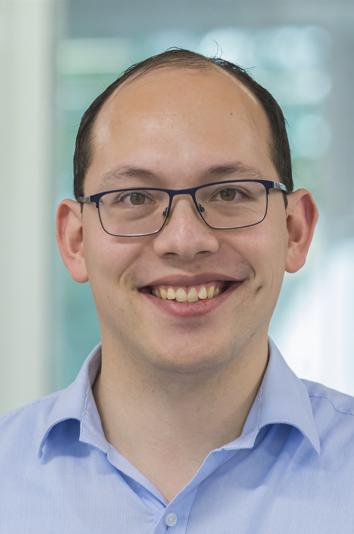
Dr. Jeremy Watson
The University of Canterbury, New Zealand
Biography: Jeremy D. Watson (Member, IEEE) received the B.E. degree (Hons.) in electrical engineering from the University of Canterbury, Christchurch, New Zealand, in 2015, and the Ph.D. degree in engineering from the University of Cambridge, Cambridge, U.K., in 2021.,He was a Research Associate with the Control Group, Department of Engineering, University of Cambridge. He is currently a Senior Lecturer with the University of Canterbury. His research interests include control, analysis, and optimization of power networks, focusing especially on hybrid ac/dc networks and microgrids
